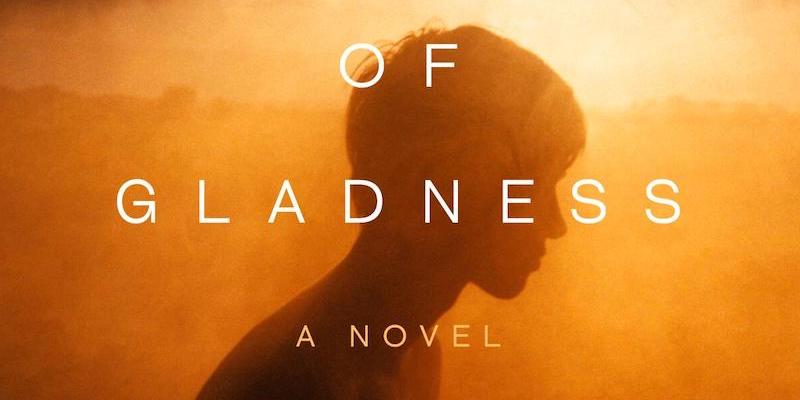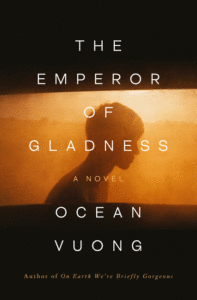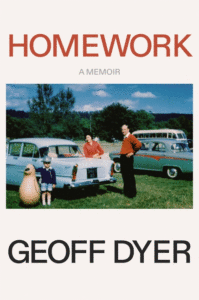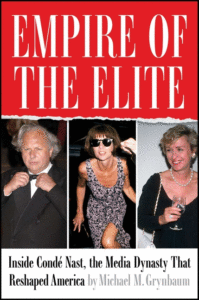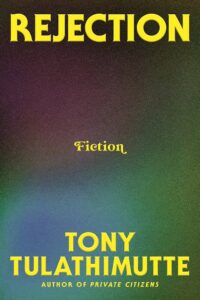Our basket of brilliant reviews this week includes Brandon Taylor on Ocean Vuong’s The Emperor of Gladness, James Wood on Geoff Dyer’s Homework, Christian Lorentzen on Michael M. Grynbaum’s Empire of the Elite, Charlotte Shane on Mayumi Inaba’s Mornings Without Mii, and Becca Rothfeld on Tony Tulathimutte’s Rejection.
Brought to you by Book Marks, Lit Hub’s home for book reviews.
*
“Here is a narrator who tells us how people are, how they think, how they live, a narrator who leans forward and explains, floats a theory now and then, and attempts to integrate the shaggy procession of images and descriptions into a totality or at least into a meaningful structure. It’s a welcome reprieve from the current mode of contemporary narrators who flee from any sort of explanatory responsibility and whose jobs seem to be to obscurerather than to generate meaning through the integration of experiences. This is not to say that Vuong’s narrator is objective or pretends to be objective, but only to say that I enjoy a narrator who occasionally, like a narrator from Wharton or James, pauses to describe the kinds of guys who exist.
…
“The point of view in The Emperor of Gladness is unstable in a way that, pardon me, feels inappropriate … Naturally, some will say that the Western tradition of the realist novel as it descends from Henry James with its single, controlling point of view is an outmoded and outdated notion that is itself a refutation of the novel’s early profligacy with respect to style of narration. And that a looser, messier, even seemingly incoherent set of choices with respect to point of view comes closer to the experience of consciousness, etc., something, something, non-Western narrative traditions, whatever, OK. But the questions I always return to are: Does the technique make the book better? Does it add something? In this case, I would say the violations in point of view just felt random and distracting and underattended to.
…
“More often the novel treats its characters like hogs to the slaughter. Why else does Vuong strip them again and again of their dignity, making them dance like rickety little puppets? The novel’s worldview is bleak beyond imagining, which itself is no great sin, but the mechanism of that bleakness seems particularly cruel. It feels somehow that the novel wants to convince us that these characters are living lives worth living and also that they’re fucking fools.
In interviews timed for the release of the novel, Vuong has expressed a desire to write about characters who fall outside the paradigm of progress. He wants to write about stuck people who work dead-end, annihilating jobs that will never permit them to rise out of material precarity. In short, he wants to write about the way that most people live. One senses that this novel is written to appear ‘unsentimental.’ I find it very sentimental. In fact, I find it practically romantic about the prosaic facts of working-class life. Vuong resists turning everything into poetry as he did in his first novel, that’s true. But I would argue that the romantic or sentimental impulses have merely been camouflaged by the novel’s more prosaic language.”
–Brandon Taylor on Ocean Vuong’s The Emperor of Gladness (Bookforum)
“In a sense, Dyer grew up alongside British cultural materialism. Intellectually, the era was one of radical ferment, but radicalism worked on the canonical: D. H. Lawrence and Thomas Hardy remained royalty in schools and universities, thanks to the king-making attentions of Williams and F. R. Leavis. It’s no surprise to find Lawrence and Hardy invoked in Homework, or to learn that one of the secondhand books Dyer’s mother brought home was a battered orange Penguin of Williams’s Border Country. You could say that Dyer has done his homework. But it’s not just homework; it’s also the work that home does on you. The reason Lawrence, Hardy, and Williams shadow Homework is not simply that Dyer is a shrewd reader who propelled himself from a bookless, working-class home to Cheltenham Grammar, and then to Oxford. Others have made that climb, too. What makes those writers crucial here is that Dyer’s own journey is viscerally connected to theirs.
…
“Dyer’s memoir is a funny and often painful book that both follows and departs from the traditional working-class bildungsroman. It offers, perhaps, a stranger account than even Dyer quite allows: at times, a wounded narrative pretending not to be. Many of the classic elements are here—the murky atrocity of school food; the ecstatic discovery of literature (for Dyer, especially Shakespeare) and music (gallons of dubious prog rock); a spurt or two of rebellion; sexual fumblings in cars; the anxious opening of exam results in ‘buff-coloured’ envelopes, those official passports to the wider world. All this is delivered in Dyer’s familiar mode of extended riffing, comic loitering, and dry exaggeration.
…
“Gradually, it becomes apparent that, running alongside the book’s comic freestyling, there’s a painful shadow text. Perhaps ‘shadow text’ isn’t quite right—the words are out in the open. In fact, they often compose sentences of acute, lancing pain, pain too great to linger over or even to fully acknowledge.
…
“So this painful and pained book proceeds—the searing, isolate sentences tearing repeated holes in the screen of banter. The punctum keeps returning, no matter how hard Dyer tries to puncture it. And how. ‘Never put anything in writing’ is one of the few pieces of advice that Dyer, the author of more than twenty books, remembers his father giving. Think about that.”
–James Wood on Geoff Dyer’s Homework (The New Yorker)
“A newspaperman I used to work with liked to say that there are two types of media columnists—reporters who get the dish on newsroom gossip and critics who are philosophers of ink and pulp—but you never get the twain in one writer. Grynbaum belongs to the former category. When it comes to hirings and firings and office intrigues, the technical word for this book is juicy. He has all the details he can fit, and he has many of them from inside sources, both on the record and anonymous, even if much of it has been aired over the years in earlier tell-alls, screeds, biographies, diaries and gossip rags.
Empire of the Elite is weaker on questions of the company’s aesthetics and editorial approaches; here Grynbaum tends to repeat the conventional wisdom, swallow the hype or, in matters of controversy, teach the debate. Grynbaum has given himself the task of mythologizing the mythmakers, where he might have chosen instead to demystify them.
…
“What these editors have in common more than some Horatio-Alger-with-a-pica-ruler climb is that they were good at their jobs. They had strong visions and were good at marshaling talent to execute them. They were also the avatars of a major generational turnover in Anglophone culture. The term Grynbaum uses is ‘yuppie,’ but a more relevant one might simply be ‘baby boomer.’ With the exception of Cooper, who was born in 1937, these editors were of the generation born between 1945 and 1960, the first to grow up with television from the cradle.
That’s one way of explaining their comfort with the celebrity-infused high/low editorial formula Brown brought to Vanity Fair that quickly spread across the rest of Condé Nast. The new guard of editors were uninhibited in matters of sex and unrestrained in their pursuit of buzz. There was no shame in chasing whatever was hot. The embrace of vulgarity caused a few resignations when Brown took over The New Yorker, but now it seems to most readers and magazine hands the natural order of things.”
–Christian Lorentzen on Michael M. Grynbaum’s Empire of the Elite: Inside Condé Nast, the Media Dynasty That Reshaped America (The New York Times Book Review)
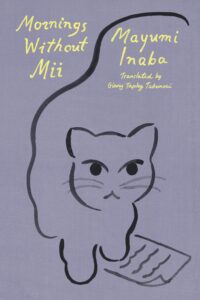
“Cat people are the only conceivable audience for Mornings Without Mii, an uneventful memoir in which a Japanese woman—married at the beginning of the book, later divorced—loves and lives with a cat who succumbs to old age. Who else would be entertained by meticulous descriptions of Mii sleeping, playing in newspapers, sniffing everything she comes across, lapping up milk? Much of the book is devoted to Mii’s habits and tastes, her comings and goings, the style in which she arranges her body, and Inaba’s passion for documenting every detail.
…
“Nothing here will surprise a cat lover, not the engrossed study and indefatigable solicitousness or the stressful relocations and the health scares. The terminus of this relationship is a forgone conclusion—with or without the giveaway of the book’s title. Mornings with Mii will inexorably give way to mornings without, which means the people most likely to appreciate the book will also find it excruciating. ‘I could barely get through it,’ says Sloane Crosley in a blurb. A friend of mine teared up upon simply hearing the title. Humans die, too, of course, we all know that. And the loss is terrible. But I would not have psychically braced myself to pick up a book called Mornings Without My Sister/Husband/Friend. Nor would I have felt so raw throughout. Love is always the Trojan horse of grief, but companion animals make this unusually clear, probably because their lifespans are so short.
…
“But Inaba’s writing, as accomplished as it may be, is affecting to me because it draws on a broad and exquisite sensitivity that Amy Hempel, in her short story ‘At the Gates of the Animal Kingdom,’ aptly named ‘the tender vittles emotion.’ It is a protective, even worshipful fellow feeling for the animals of the world, especially the domesticated and dependent ones, regardless of whether they are unknown to us or personally beloved, and it’s an impulse easily belittled by those who’ve either never felt it or refused to tolerate it in themselves … There is an intensity here that, being widespread but not universal, borders on the deranged, yet it is one of the most precious, vital sensations I know. To adore without reservation—which is, essentially, a religious experience—is to feel that one’s own life has meaning and purpose.”
–Charlotte Shane on Mayumi Inaba’s Mornings Without Mii (Bookforum)
“In this book there is no alternative to shame and self-loathing, no possibility of redemption. Tulathimutte’s stories are impressive, but that doesn’t make them nice to read. Their unpleasantness is testament to the perversity of their subject matter, because the writing itself is enormous fun. Tulathimutte seizes on the indignities of contemporary language and wrests them into absurdities. Bee, Kant’s sister, says she’s ‘always believed that microaggressions warrant microapologies.’ Alison describes herself as being in a ‘whatevership’ with the man whose wedding she disrupts. Descriptions are satisfyingly tart. Kant’s incompatible boyfriend is ‘tanned and centered, his chakras agape, comprehensively Californian.’ Philip Roth and David Foster Wallace come to mind as antecedents, though Tulathimutte has their wit without their warmth. He writes like a child holding a microscope over the ground, peering down at an insect burning to death.
…
“Tulathimutte is engaging here in a kind of hysterical augmentation, a gothic enlargement of the sort that influencers undertake when they document (and dramatize) their days. He writes in the exaggerated register of the internet post: one story in Rejection even takes the form of a Reddit post, while ‘Main Character’ is a series of entries on a forum. In ‘Pics,’ Alison belongs to a group chat that functions like a judgmental Greek chorus. (We can tell that Alison is a pariah because her contributions are fastidiously punctuated.) These stories are everything that a good post should be—including a little too outrageous to be believable.
…
“…most of Tulathimutte’s characters are nothing but their online avatars: pure shtick, without any interior life. It would be interesting to see him turn his skills to the plight of someone who isn’t simply loathsome and inauthentic—not because fiction has to be populated by good guys, but because most people are at least marginally more complex than they appear online.”
–Becca Rothfeld on Tony Tulathimutte’s Rejection (London Review of Books)
